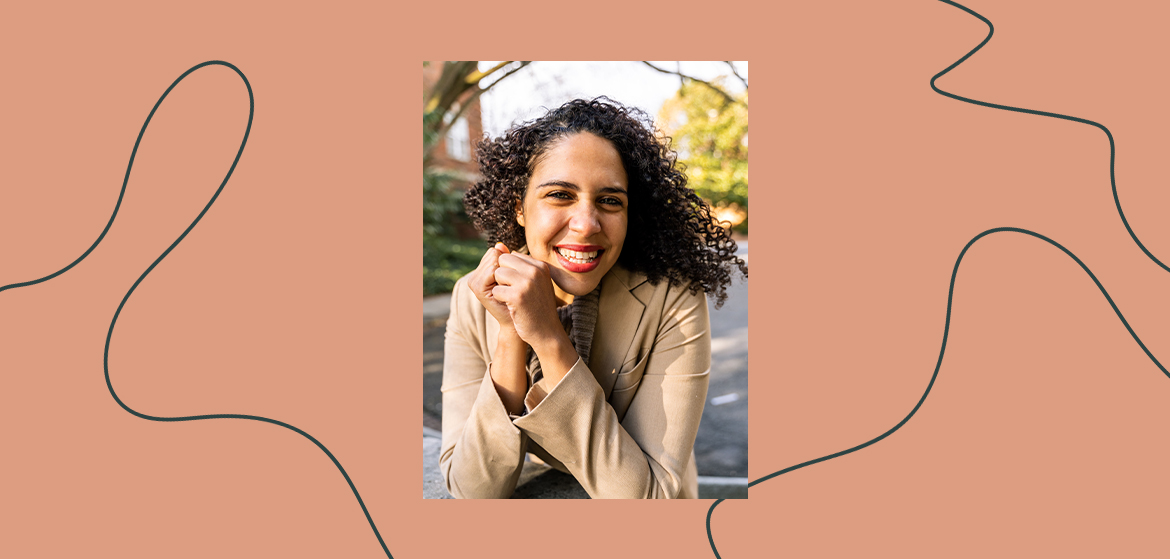How To Deal When Your Friend Is Dating Someone You Don’t Like
It's a tale as old as time that you and you and a pal get along super well, feel super connected, and nothing seems like it could ever get in the way of that dynamic. That is, until they fall for someone who just doesn't do it for you. But does the situation of your friend dating someone you don't like need to be the nail in the coffin of an otherwise fantastic bond?
Figuring out how to deal when your friend is dating someone you don’t like was the main topic of discussion during this week’s episode of The Well+Good Podcast. During the chat, author, psychologist, and friendship expert Marisa Franco, PhD, gave advice for how to approach the situation with your friend and do everything you can to protect your relationship with them.
Listen to the full episode here.
First and foremost, know that it’s normal for friendships to go through conflict—and not liking your person's person definitely constitutes a conflict. To keep the quality of the friendship in tip-top shape, it's important to work through those with just as much intention and attention as you would with romantic relationships.
“People are so afraid of acknowledging conflict in friendship.” —friendship expert Marisa Franco, PhD
“People are so afraid of acknowledging conflict in friendship,” says Dr. Franco, adding that folks too often assume a friendship will be over when they need to broach a tricky topic—like, ahem, if a friend is dating someone you don’t like. This assumption, she says, is largely misplaced, as conflict is normal and conflict resolution may even facilitate growth. “Ruptures are part of intimacy in friendship—as they are in romantic relationships, as they are in family relationships,” Dr. Franco says. “That's just what it means to be intimate with someone—there's going to be miscommunications, disagreements, [and] different needs that you have to negotiate.”
And, to be sure, not liking your friend’s person is absolutely a reason why you might experience conflict in your platonic connection. Once you understand that conflict is a normal part of a friendship, though, you'll become less fearful of approaching your bestie and letting them know that you’re not exactly fond of their partner.

How to tell your friend they’re dating someone you don’t like
Instead of starting the conversation with the tough news that you don't like your friend's partner, Dr. Franco suggests focusing on how you, yourself, feel as well as how much you value your relationship with your friend.

{{post.sponsorText}}
“You want to start with a framing sentence, and that sentence should emphasize how important the friendship is to you,” says Dr. Franco. To open a healthy dialogue, Dr. Franco suggests saying something like, “Hey, I love you. I value you. You've always been my person,” and then acknowledging that the friendship is going through a change because they’re now in a relationship.
This way you're signaling that you're coming from a place of love for them, so there's no need for them to jump to the defensive. “That sits really differently than being like, ‘You've been ignoring me,’ [which comes off as] attacking,” says Dr. Franco.
From there, you might consider how your friend responds. Good signs, according to Dr. Franco, include:
- Your friend doesn’t get defensive because they know you want what’s best for them.
- They hear all of your concerns and ask you why you have them.
- They’re open to fulfilling your needs in the friendship.
To communicate your needs to your friend, though, you first have to identify what those needs actually are: How often would you like to see your friend in a one-on-one setting? What kind of activities do you want to do with them? What do you miss about when they were single? These questions can help you arrive at a solution that makes you feel closer to your friend, even if you don't like their boo.
And since friendship is two-sided, it’s integral for you to also consider your friend’s needs (in addition to just your own) and how those needs might have changed since they started up with their partner. So, ask them what their friendship needs are so you can assess whether or not you can meet them. Once you both establish what your friendship needs are, you can find an overlap and figure out what’ll be an appropriate compromise for all parties involved.
What to do if you're unsure it's worth bringing up at all
It's important to be careful that your biases don’t play into how you evaluate your friends’ partners, Dr. Franco says. For example, consider whether your friend is dating someone you simply don’t like or get along with or someone who’s displaying more alarming romantic relationship red flags, like excessive jealousy. The difference between these situations might inform how you go about communicating with your friend.
To help you determine where your situation falls, you might want to chat with a mutual friend, says Dr. Franco. “Sometimes it can be helpful to engage in some sort of consensus-sharing with your other friends,” she says. “Like, ‘I heard that this happened—this was my reaction. What did you think about that? Is this a concern that I should bring up?’”
If your other pals don’t think that it’s worth bringing up, ask yourself how much of your own experience is potentially affecting how you think about your friend’s partner. If you still feel that this isn’t the person for them, communicate that from a place of love. So long as you’re open, honest, and mindful in your communication, a friend dating someone you don’t like is not a reason that particular platonic connection will end.
Oh hi! You look like someone who loves free workouts, discounts for cutting-edge wellness brands, and exclusive Well+Good content. Sign up for Well+, our online community of wellness insiders, and unlock your rewards instantly.
Loading More Posts...